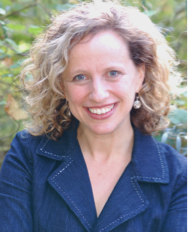When the book of Ruth is read each Shavuot, I sometimes have a hard time relating to the idyllic world that the book describes. Sure, Boaz is such an upstanding guy; who wouldn’t want to fall in love with him? Ruth herself is an amazing role model, the Jew-by-choice who becomes the great-grandmother of King David, and ultimately, one of the ancestors of the Messiah. Beyond the appeal of Boaz and Ruth, however, there is something about the world they inhabit which seems distant and almost unrecognizable to much of the Biblical world, not to mention to many parts of our world today.
In the community of Boaz and Ruth, everyone seems to take equal responsibility for maintaining a just society, feeding the poor, and protecting the vulnerable. Boaz’s workers follow the laws of leket, letting the poor glean from their crops, and it is clear that there is a culture of giving throughout the book. As Rachel Rosenthal writes in the Forward, the book of Ruth presents a kind of utopia, where people care for one another.
The underlying theme of Ruth is kindness. It is not a token kindness, born of the hope of reciprocity. It is not an ordinary kindness, based on the general principal of doing unto others. Instead, it is an extraordinary kindness, deep and real, done without any assumption of receiving something in return. It is a kindness that has the power to redeem those who are the most broken, and one day, even the world.
The book of Ruth closes with the birth of David (and its Messianic possibility) to highlight this dream of utopic kindness and peace. It seems so very foreign to the reality, and sometimes ugliness, of the Biblical world. And yet perhaps that is precisely the point, argues my colleague Dorothy Weiss, the chair of the Schechter Westchester Tanakh department.
As Weiss points out, it is the first four words of Ruth that offer a key to understanding the book. “And it was in the days when the judges judged…” The book of Ruth tells us, from the very first words, that it is an alternative vision of the contemporaneous world in the book of Shoftim (Judges). Remember the book of Shoftim, where “everyone did what was right in his own eyes?” Judges ended in horrible violence, with the rape, murder, and dismemberment of the concubine in Gibeah, followed by a reign of war and terror. In the world of Ruth, where generosity and kindness hold forth, the end is redemption. Quite a difference.
It is essential to acknowledge the ugly reality of our world, as the book of Judges does. It’s important to see the underbelly, to recognize the human capacity for evil and horrible acts. But we need to hold a vision of a different kind of reality if we are to keep working towards something better. For those of us who care about social justice, the book of Ruth is a remedy to the negativity and fear-mongering which can hold us back. If we want to bring redemption to the world, we first have to imagine it. The book of Ruth helps us hold that vision; may we be privileged to see it–and to build it.
Rabbi Abby Sosland is the Morah Ruchanit (Spiritual Advisor) at Schechter Westchester High School, and she teaches widely on Talmud, Bible, philosophy and prayer. She recently gave an ELI talk on Shameless Judaism.

